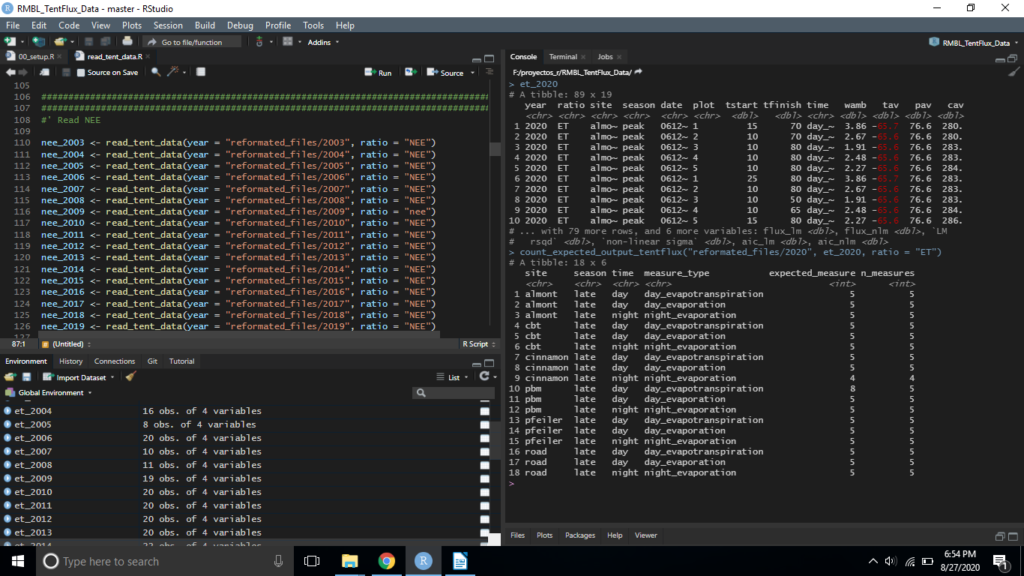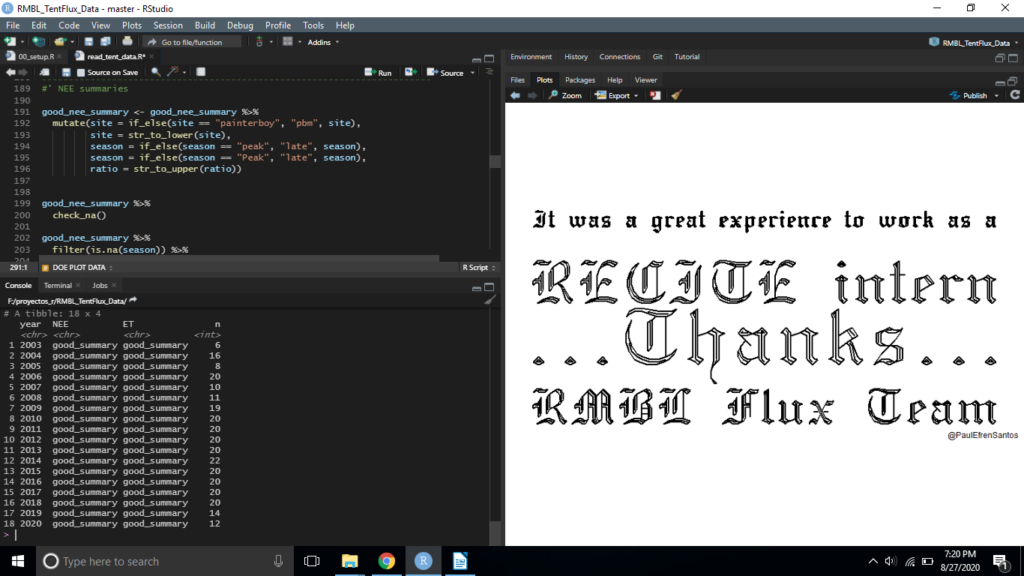a. What is your background? Where are you from? What do you study? What are you most interested in, scientifically?
Hi, I am a Peruvian plant ecologist and enthusiastic R programmer. I am working with plant functional traits and plant community dynamics along an elevation gradient in the tropical rain forest of Peru. I am interested in understanding how the functional structure of the plant communities is changing as a response to the rise of temperatures and reductions of precipitations due to climate change.
b. Give us a brief summary of your internship project. What is the study system? Primary research questions? With whom are you working?
During the RECITE internship, I have been working primary on a long term (~15 years) data set of peak carbon and water flux measures of vegetation collected along an elevational gradient in the East River Basin near Crested Butte, Colorado, USA The study system are alpine and subalpine communities of the Rocky Mountains, which show a directional shift in temperatures and vapor pressure deficit with increasing hotter and drier growing seasons. The growing season in much of the Western and Southwestern United States is characterized by an early drought that occurs after the snowmelt and last until the summer monsoon season. This area is showing a reduction in precipitations, rise of temperatures and earlier snowmelt dates, and climate change models predict this tendency to worsen in the upcoming years. We are primary interested in testing how the increased in temperatures and the shifts in snowmelt dates is influencing the ecosystem carbon and water exchange. I am working primary with Julia Chacón-Labella, a postdoctoral scholar working at the University of Arizona, Tucson, USA.
c. What is your role in the research team in terms of tasks and responsibilities, and how do these relate to the aims of the research project?
I work in the process of cleaning and standardizing all data files. I am also developing a protocol for standardizing the data storage and cleaning, i.e. how the data are saved from the fieldwork and how the processing of the data should be later in the lab. Our main aim is to ease the data processing, improving data management in the future after the field campaigns.
d. What were your specific goals for the upcoming internship? These can be both scientific and personal. Are you meeting, or did you (if the internship is complete) accomplish your goals? Please explain with specific examples if possible.
I’m trying to improve my data processing and R programming skills. I am also learning how the research workflow continues once the fieldwork is completed. I think that I accomplished my objectives, working with a big amount of data (approximately 15 years of carbon and water fluxes data along a elevational gradient). It was challenging, but I coded a process of validation and consolidations of functions to automate the data cleaning. I think I really improved my programming skills.
e. What skills or knowledge from your prior experience and education did you find useful during this internship? Did you develop any new skills or knowledge? Please explain.
I based my internship tasks on my R programming skills, to clean, organize and validate ~15 years of carbon and water fluxes along an elevational gradient in Colorado. I have improved my programming skills and now I also have a more solid knowledge on how climate change is affecting carbon and water fluxes, and snowfall dynamics in the western USA.
f. How has the COVID19 pandemic altered your plans or your experience during this internship?
Earlier this year I was considering applying to the Internship to be part of the field season, but due to the COVID19 restrictions, all the field season were canceled. At least, I had the opportunity to participate on a remote internship was interesting going over a different part of the research activities.

